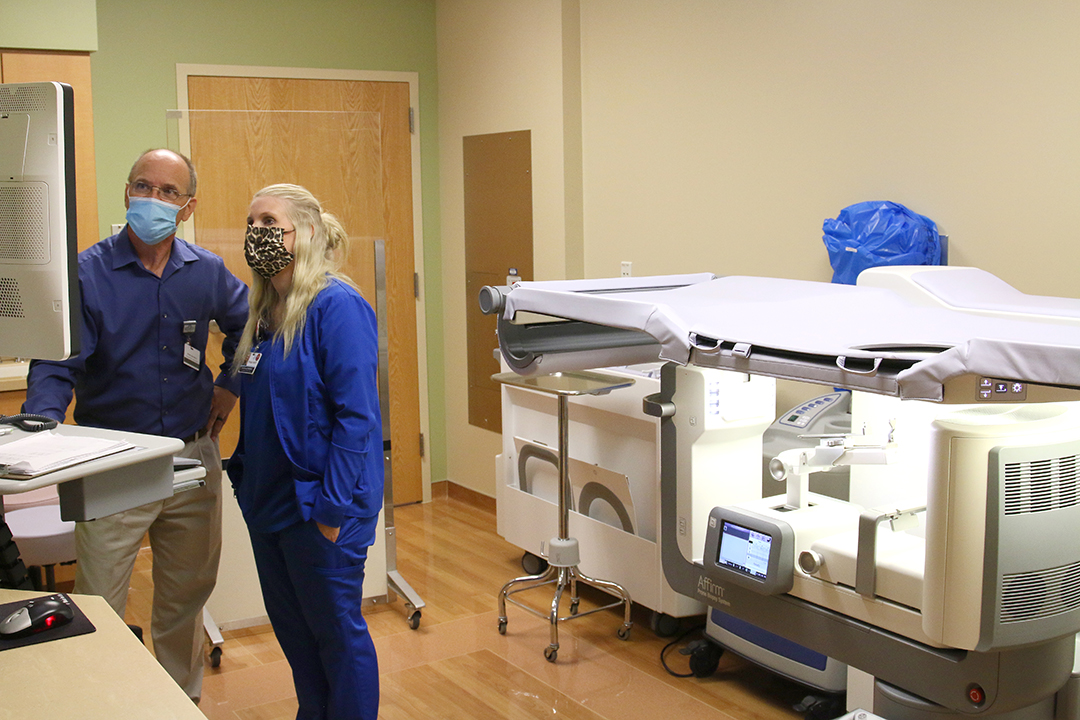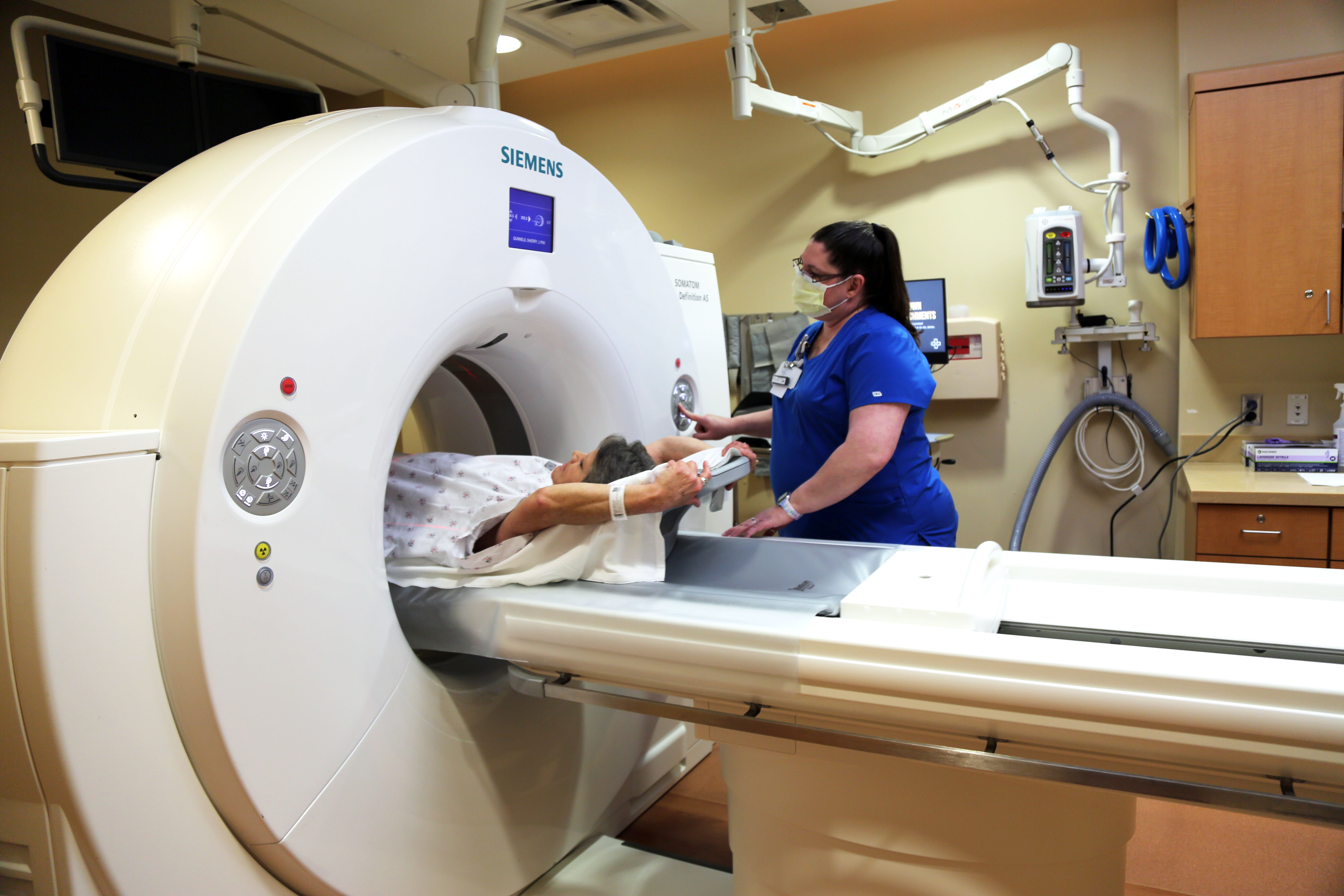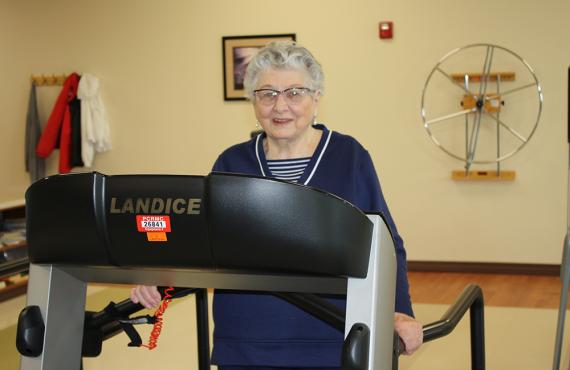Published on September 16, 2022
Phelps Health has been awarded a 3-year term of accreditation in both stereotactic breast biopsy and computed tomography (CT) as the result of a recent review by the American College of Radiology (ACR).
A breast biopsy is performed to remove cells — either surgically or through a less invasive procedure involving a hollow needle — from an area in the breast suspected to be cancerous. These cells are examined under a microscope to determine a diagnosis.

In stereotactic breast biopsy, a special mammography machine helps guide the radiologist’s instruments to the site of an abnormal growth.
In 2021, the Phelps Health Comprehensive Breast Center added a Hologic Affirm 3D Stereotactic Biopsy Unit that was purchased thanks to a donation of over $280,000 from the Phelps Health Auxiliary and Volunteer Services.
CT scanning — sometimes called CAT scanning — is a noninvasive medical test that helps physicians diagnose and tailor treatments for various medical conditions. One such condition CT scans are beneficial for is finding signs of lung cancer.
Phelps Health offers lung cancer screenings, which use low-dose CT scans, for certain patients at high risk of developing lung cancer.

The ACR gold seal of accreditation represents the highest level of image quality and patient safety. It is awarded only to facilities meeting ACR Practice Parameters and Technical Standards after a peer-review evaluation by board-certified physicians and medical physicists who are experts in the field.
Facilities that have the ACR gold seal of accreditation have undergone a rigorous review process and meet nationally accepted standards of care. The accreditation also means personnel are well qualified to perform procedures and interpret medical images and that equipment is assessed by a medical imaging expert who verifies that it functions properly, takes optimal images and utilizes appropriate radiation dose levels.
Image quality, personnel qualifications, adequacy of facility equipment, quality control procedures and quality assurance programs are assessed. The findings are reported to the ACR Committee on Accreditation, which subsequently provides the practice with a comprehensive report that can be used for continuous practice improvement.
The ACR, founded in 1924, is a professional medical society dedicated to serving patients and society by empowering radiology professionals to advance the practice, science and professions of radiological care. The College serves more than 37,000 diagnostic/interventional radiologists, radiation oncologists, nuclear medicine physicians and medical physicists with programs focusing on the practice of medical imaging and radiation oncology and the delivery of comprehensive healthcare services.

